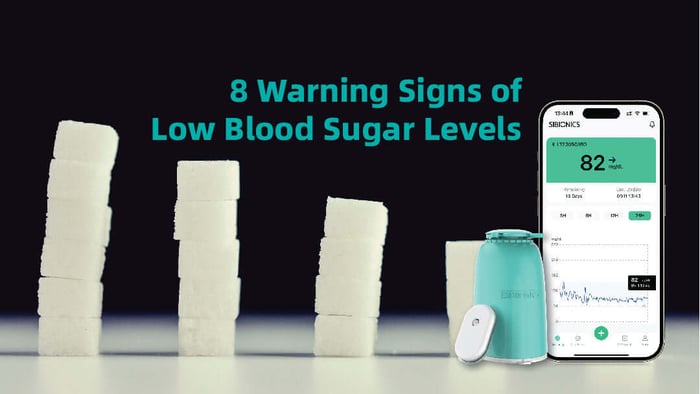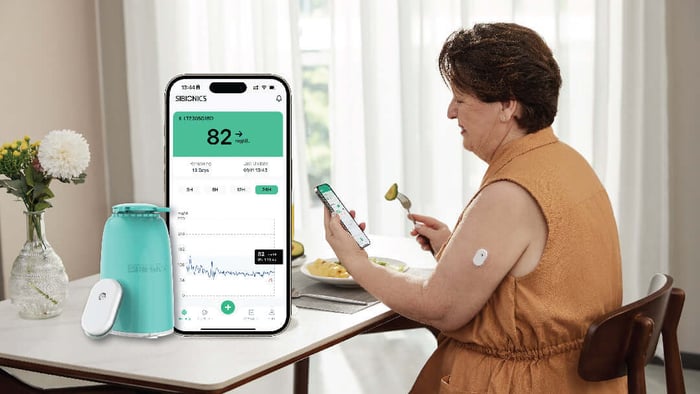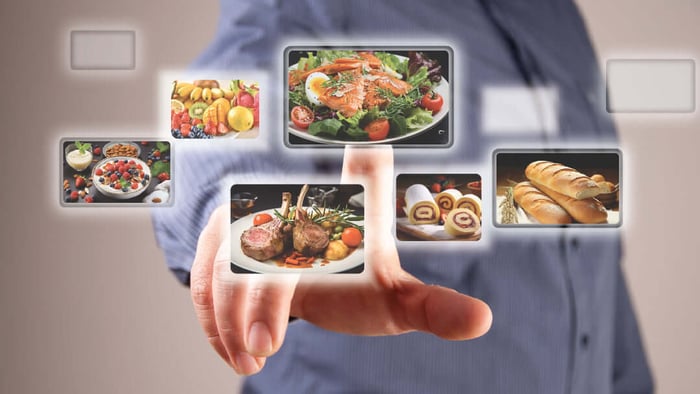Maintaining stable glucose levels is crucial for overall health, especially for individuals with diabetes. Hypoglycemia, or low glucose, can occur unexpectedly and lead to serious complications if not addressed promptly. It's therefore vital for diabetes patients and their loved ones to educate themselves on the warning signs of impending hypoglycemia.
Some of the most common physical symptoms experienced during developing or active hypoglycemia include:
1. Sudden Hunger Pangs:
One of the earliest signs of low glucose is sudden hunger pangs or intense cravings, even if you've recently eaten. When glucose levels drop, your body sends signals to replenish glucose, leading to feelings of hunger.
2. Shakiness or Trembling:
Feeling shaky or trembling, especially in the hands or legs, can be a clear indication of hypoglycemia. This trembling occurs as a result of the body's response to low glucose, triggering the release of stress hormones like adrenaline.
3. Sweating:
Experiencing sudden, unexplained sweating, even in cool environments, can be a sign of low glucose. Sweating is your body's way of trying to regulate its temperature when it senses a drop in glucose levels.
4. Dizziness or Light-Headedness:
Feeling dizzy or light-headed is another common symptom of hypoglycemia. Low glucose levels can affect brain function, leading to feelings of dizziness or faintness.
5. Confusion or Difficulty Concentrating:
When glucose levels drop too low, it can impair cognitive function, leading to confusion, difficulty concentrating, or feeling disoriented. This can make simple tasks feel challenging and may indicate a need for immediate intervention.
6. Irritability or Mood Swings:
Low glucose can also impact mood, causing irritability, mood swings, or even feelings of anxiety or agitation. These emotional changes are often the result of the brain's response to fluctuating glucose levels.
7. Weakness or Fatigue:
Feeling weak or fatigued, even after getting adequate rest, can be a sign that your glucose levels are too low. Without enough glucose to fuel your body's cells, you may experience a profound sense of weakness or exhaustion.
8. Blurred Vision:
Poor eyesight, dimming, or doubled/tripled vision can occur as optic nerve and retinal cell function is compromised by hypoglycemia's effects.
Of course, it's important to note that not every hypoglycemic event will necessarily present with the same set of signs or in the same order and intensity for each individual. Factors like severity, duration, and concurrent medications impact symptom expression.
Forgetting to eat, eating too little, or delayed meals can heighten susceptibility by depleting liver glycogen stores. Similarly, unplanned or unusually intense activity can outstrip glucose supply. Hormonal shifts, stress, illness, and alcohol may also trigger or exacerbate hypos.
SIBIONICS GS1 Continuous Glucose Monitoring (CGM) System can help diabetes patients proactively detect and act on impending hypos before they progress. Its waterproof sensor transmits real-time interstitial fluid glucose readings every 5 minutes for up to 14 days. Its discreet, yet robust Bluetooth connectivity ensures seamless data streaming to SIBIONICS App, alerting users when levels dip into unsafe zones.
Conclusion:
Recognizing the warning signs of low glucose is crucial for individuals with diabetes or anyone at risk of hypoglycemia. If you experience any of these symptoms, it's essential to check your glucose levels and take appropriate action to raise them. Always carry a fast-acting source of glucose, such as glucose tablets or a sugary drink, to quickly address low glucose episodes.
FAQs:
Q: What causes low glucose without diabetes?
A: Some other conditions that can cause low glucose (hypoglycemia) include liver disease, kidney disease, certain hormonal disorders like Cushing's syndrome, some tumors, enzyme deficiencies, malnutrition, and excessive alcohol use. Dumping syndrome after gastric bypass surgery and reactions to certain medications like beta blockers can also trigger hypoglycemia.
Q: What should I eat after low glucose episode?
A: After treating a low glucose episode by consuming fast-acting carbs like glucose tablets or juice, it's important to follow up with additional foods. Combining carbs with protein or fat helps stabilize your glucose and prevent it from rebounding too high. Some good snack options include yogurt, fruit, cheese, hard-boiled egg, etc.
Q: What is nocturnal hypoglycemia?
A: Nocturnal hypoglycemia refers specifically to low glucose that occurs during the night while sleeping. It can be caused by evening mealtime boluses of insulin lingering in the body for too long overnight. SIBIONICS CGM has helped better identify and manage nocturnal hypoglycemia to prevent severe or prolonged lows during sleep.
Q: What happens if glucose gets too low while sleeping?
A: If glucose drops too low during sleep due to things like late night snacks wearing off or an incorrect long-acting insulin dosage, it can be dangerous. Low glucose may not cause severe symptoms until very low which increases risks of seizures or other complications.








